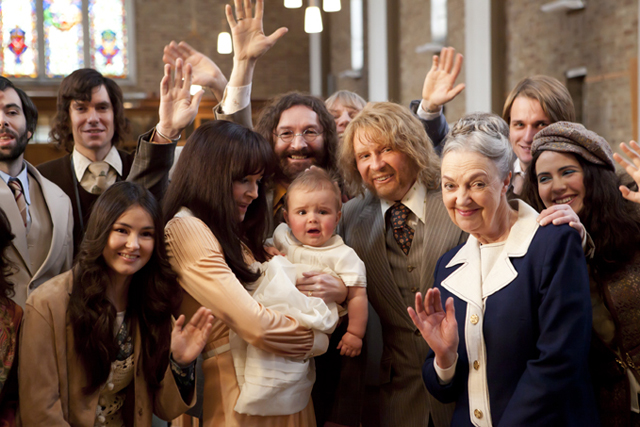At various times in our lives we all face moments where our personal journey is disrupted as we are pushed and pulled in different directions and face new challenges, aspirations and mindsets along the road.
It is at these precise moments (as we are thrown off course) that we are considerably more open to support and guidance, even deliberately searching for it on our own accord. These opportunities for influence offer a perfect entry point for products and brands to become part of our repertoire with potential to build bonds for life.
Some brands have successfully been taking advantage of this for decades. As many expectant mothers know, entering motherhood entitles them to a whole host of sample products and information provided by the Bounty Pack scheme.
Bounty acknowledges on its website that ‘discovering you’re pregnant is an exciting time’ and ‘it can be hard to make decisions when buying baby products’. They reassure mums-to-be that they ‘have taken all the hard work out’ and offer free samples from the ‘leading baby brands’ and advise on anything and everything regarding baby products.
All it takes is for an expectant new mother experiencing this life changing moment to trial a new product or notice a new brand being advertised, and once they have developed a habit of behaviour there is a strong likelihood they will stick with that product for baby number two. This ensures the investment in the scheme by the likes of Unilever, Nestle and P&G is money well spent now and for the future.
I myself am currently experiencing an exciting life changing episode as I plan my upcoming wedding. From the moment my relationship status on Facebook changed from ‘in a relationship’ to ‘engaged’ last February I was introduced to a whole world of things I was not previously open to.
Travel companies (who know from my status change that I’m engaged) are telling me via adverts on my homepage that they can plan the perfect honeymoon. Other recently married friends are offering advice on where to look for flowers, wedding stationary and bridesmaid dresses. I am even being told which products to include on my gift list, from the crockery and glassware that will apparently ‘last a lifetime’ to the kitchen appliances that I should, so it seems, be using on a daily basis upon entering marital bliss.
When it comes to advertising campaigns, it is those which reference life changing moments that conjure the deepest emotional connection with consumers.
This was beautifully demonstrated by the success of BT’s seven year long campaign which followed the story of Adam and Jane as they moved house, broke up and eventually got married.
The nation was hooked with fans being recruited on Facebook to take part in the ads and over 1.6 million people voting for the character of Jane to become pregnant. The moments referenced over the course of the forty ads were so simple and yet so effective, as they were realistic touch points through life that we can all relate to and empathise with.
But some could say that life events, such as getting married and entering motherhood are a tad overused. What about the more inconspicuous moments in life where we could also be susceptible to a little clever marketing?
BT has again hit success with their replacement campaign which focuses on new students settling into university life. The new angle has resulted in over six million more views across social media and a significant rise in uptake of the BT Infinity product. BT’s marketing director David James is happy with the reaction, stating that the campaign brings a new energy and is set to stay for the long run.
Aviva has also just rolled out a new campaign with the theme ‘when the big things in life happen, the little things matter’. The aim, according to marketing director Adam Beckett, is to "help raise awareness of some of the key moments when financial planning is crucial".
The ad takes us on an emotive journey through different stages in a man’s life, cleverly referencing Aviva’s products along the way. It includes moments such as experiencing a burglary, reaching retirement and even being diagnosed with and recovering from cancer. It is hard to get an initial read on how successful the ad has been, but I think it is safe to say that it is certainly memorable and stood out among many of the other ads aired over the festive period.
At Ipsos UU we have conducted many advertising studies with a focus on identifying the big idea and often find that the emotional hook stems from a key moment in life. For example, in groups conducted for a pet care brand it became apparent that the most effective platform to use for creative development was ‘unexpected love’. This refers to the heart-rending moment where you realise the pet you have recently bought for your family means just as much to you as it does to them.
Life changing moments clearly offer the sufficient levels of engagement essential for any emotive piece of communication, as demonstrated by effective direct marketing such as the Bounty scheme. There are also lots of untapped occasions which could resonate just as well with consumers as getting married and entering motherhood.
Could you do with a new wardrobe when you start your first job? Is it time to renovate your house when your kids have flown the nest? Are you going through divorce and in need of a holiday to start afresh? Whatever it may be, there is undoubtedly huge potential for any company to explore the power of life changing moments.


